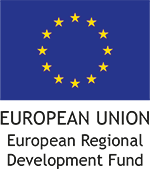![]()
Focus on plastics – Introduction Global Framework
EU legislation and policies HELCOM Circular Economy
References and related publications![]()
FOCUS ON PLASTICS
![]()
Increased use of plastics, combined with insufficient waste policy, is a major factor in the global problem of marine littering. The issue of marine plastics has to be dealt with within the larger framework of waste management and circular economy. Prevention of marine littering is linked to policies of product design, product and chemical policy, shipping, and fisheries policy. Policy initiatives, along with corporate responsibility, can be most effective when supported by increased awareness and knowledge in changing existing attitudes.
The plastic marine litter management is dealt here in five distinct sections:
1) Introduction, 2) The global framework, 3) The EU legislation and policies, 4) The HELCOM activities, and 5) The circular economy.
GLOBAL FRAMEWORK
Marine litter is a global problem. International legal governance of the oceans consisting of policies and strategies set by the United Nations (UN) provide the base on which to handle it.
![]()
EU LEGISLATION AND POLICIES
EU’s goals and objectives provide policy makers, and other stakeholders, direction and a framework for actions to combat littering of European seas. They provide a platform for cooperation between European business, private sector and public authorities.
HELCOM, Baltic Marine Environment Protection Commission, and its Action Plan (BSAP) play an important role in implementation of the Baltic Sea environment policy. HELCOM’s work is based on intergovernmental cooperation between all coastal countries and the European Union. The local action plans on litter management are done in cooperation between national authorities and HELCOM.
![]()
circular economy
The Baltic Sea circular economy guidelines have been ruled within the EU and through cooperation projects within the Nordic countries. The waste management, and the issue of marine littering, is closely connected to broader context of circular economy. The EU action plan for the circular economy, together with the legislative proposals on waste and chemicals policies, sets long-term targets to increase preparation for reuse and recycling of key waste streams. Increased plastic recycling is an essential goal.
![]()

